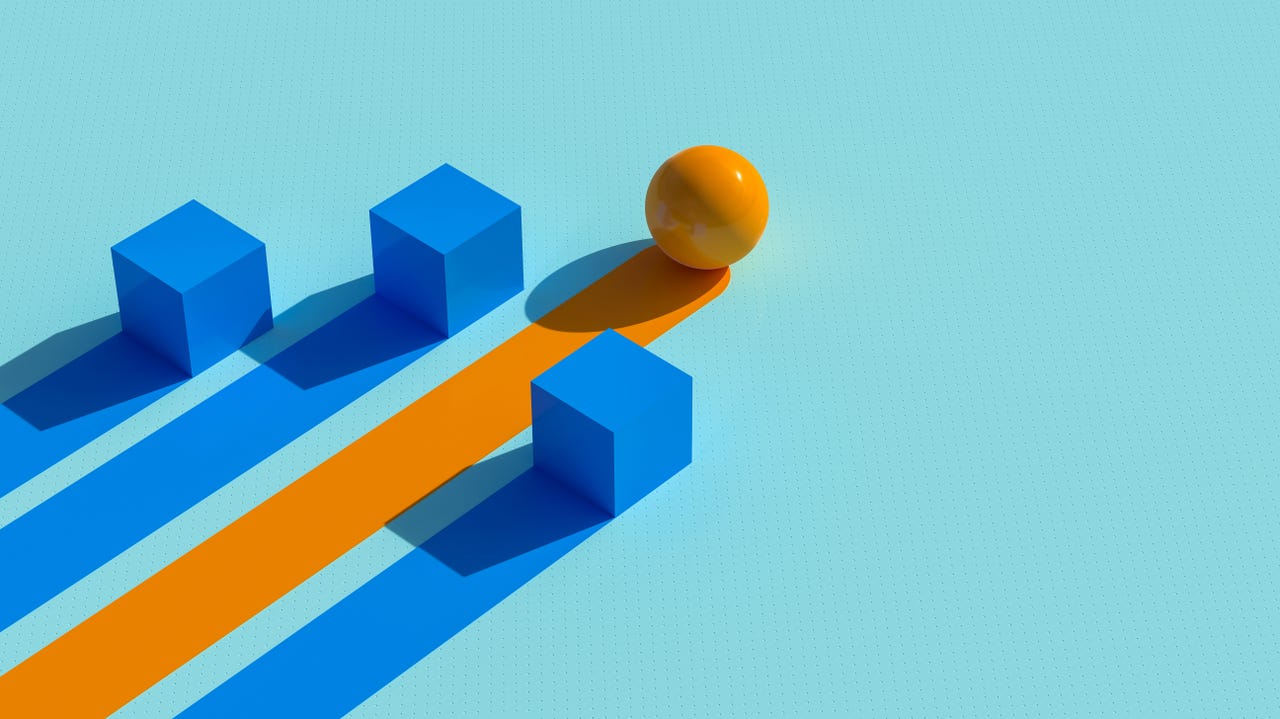'ZDNET Recommends': What exactly does it mean?
ZDNET's recommendations are based on many hours of testing, research, and comparison shopping. We gather data from the best available sources, including vendor and retailer listings as well as other relevant and independent reviews sites. And we pore over customer reviews to find out what matters to real people who already own and use the products and services we’re assessing.
When you click through from our site to a retailer and buy a product or service, we may earn affiliate commissions. This helps support our work, but does not affect what we cover or how, and it does not affect the price you pay. Neither ZDNET nor the author are compensated for these independent reviews. Indeed, we follow strict guidelines that ensure our editorial content is never influenced by advertisers.
ZDNET's editorial team writes on behalf of you, our reader. Our goal is to deliver the most accurate information and the most knowledgeable advice possible in order to help you make smarter buying decisions on tech gear and a wide array of products and services. Our editors thoroughly review and fact-check every article to ensure that our content meets the highest standards. If we have made an error or published misleading information, we will correct or clarify the article. If you see inaccuracies in our content, please report the mistake via this form.
4 things Claude AI can do that ChatGPT can't


ChatGPT is often considered the best artificial intelligence (AI) chatbot available. GPT-3.5, the large language model (LLM) used in the free version of ChatGPT, was the largest and most powerful of its kind, surpassed only by GPT-4, which is available with a $20 monthly subscription to ChatGPT Plus and through Microsoft Copilot.
The success of ChatGPT upon launch swiftly inspired other companies to publicly launch their own AI chatbots, as evidenced by Microsoft Copilot (formerly Bing chat), Google Gemini, and Anthropic's Claude, to name a few.
Also: The best AI chatbots of 2024: ChatGPT and alternatives
Anthropic, a safety and research company focused on AI, recently launched the latest version of its AI chatbot, Claude 3. Since then, it's become clear that this generative AI tool has at least some advantages over OpenAI's free version of ChatGPT.
4 things Claude AI can do that ChatGPT can't
ChatGPT and Claude have strengths in different areas. But even though Claude isn't better at everything when compared to its main competitor, it has some features that give it an edge over ChatGPT. Which one works best for you is about determining which AI to use for different circumstances.
1. Read, analyze, and summarize uploaded files
Adding files in a chat is Claude's definitive advantage over ChatGPT.
Claude lets you upload files by clicking the attachment button or dragging and dropping them right onto the text input area. Users can add up to five files at a time, each one up to 10MB.
Also: Have 10 hours? IBM will train you in AI fundamentals - for free
When a user uploads a file and submits it with no other instructions, Claude will automatically summarize it. Summarization isn't the only benefit. Once you add text or a file, the AI chatbot will learn about it and maintain the context of the information you upload throughout your conversation.
As a result, you can ask the chatbot follow-up questions specific to the document or text, such as explaining something you didn't understand or that wasn't covered in the summary. For example, suppose you add a medical study PDF to a chat with Claude. In that case, the AI will learn what the study says so that you can ask it specific questions, such as, "What was the study's intent?" or "What percentage of participants had X results?"
The uploaded files can be Word documents, PDFs, .txt, .csv, and others. Claude doesn't handle Excel spreadsheets, although you can convert those files to PDFs and then upload them to the AI to summarize.
2. Process more words than ChatGPT
The previous Claude 2 was launched ls July with a whopping 100,000 (100K) tokens, which makes for longer input and output than the free version of ChatGPT. This capability means users can exchange up to around 75,000 words in each conversation. The latest version currently available, Claude 3, can handle about 200,000 words, with a 195K context, giving it an even better ability to understand context in conversations.
Claude's 195K context exceeds ChatGPT's 4K context in GPT-3.5. Context enables LLMs to generate nuanced, natural language by leveraging information from massive datasets used to train the models on the contextual relationships between words and phrases.
In simple terms, this context is the background information, such as previous chats, the back-and-forth conversation from earlier in a chat, and user preferences that give the AI bot a better understanding of what's happening. This information could be maintaining context within a long conversation or applying it to a user's settings. Typically, the larger the context, the more accurate the information in a conversation.
Also: GPT-4 Turbo reclaims 'best AI model' crown from Anthropic's Claude 3
Context helps the AI chatbot understand when a user, for example, might be referring to a "bat" in sports equipment or a winged animal.
Claude's context means it can parse and summarize long documents, including scientific and medical studies, books, and reports. This context also means Claude can generate long texts up to several thousand words long.
3. Provide information after 2022
Claude 3 was trained with data up to August 2023. In contrast, ChatGPT was trained on data leading up to January 2022.
Also: These are my 5 favorite AI tools for work
While neither AI chatbot has access to the internet, Claude knows information that ChatGPT doesn't, such as the products Apple launched last year and the specs of the Galaxy S23 lineup of smartphones launched in February 2023.
4. Access links and (somewhat) summarize their contents
Users can add documents to Claude and drop links into a chat to get it to summarize the contents. When you add links, Anthropic warns that Claude might hallucinate when links are input into the chat, which I found true about a third of the time.
The example below shows how Claude "summarized" a Wall Street Journal article when I gave it just the link on the left and when I gave it the text I accessed with my subscription on the right. This task raised two striking issues: major hallucinations and the possibility of accessing paywalled content.
The article discusses controversies involving restaurant tipping in Chicago, where new regulations are being considered. Claude's major hallucination involved saying that the issue was being debated in New York City instead of Chicago, which changes the article's main subject.
Also: How does ChatGPT actually work?
The fact that it seems like it can access content through links raises the question of whether or not Claude can bypass paywalls, a characteristic that could infringe copyright laws. I did give Claude paywalled links to test its capabilities. Claude gave a summary similar to its answer using the copied text, albeit with hallucinations.
The bottom line is that I wouldn't trust Claude's summarization through links, as the results can be wildly inaccurate. However, summarization is a major feature that Anthropic could improve and build upon, as long as restrictions to respect paywalled content are in place.
The left image shows how Claude summarized information from the link I gave it, and the right shows how it summarized the text. The discrepancies are highlighted.
ChatGPT and Claude are both powerful AI chatbots, but there are differences in capabilities that make Claude more capable of excelling at certain tasks, such as parsing large texts and documents, like PDFs.